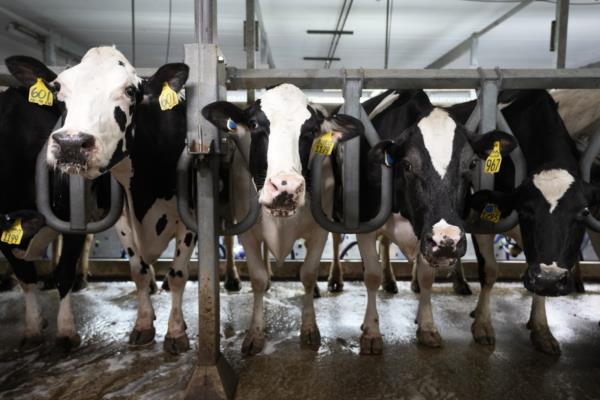
A fourth individual in the United States has been confirmed to have tested positive for H5 bird flu, marking a concerning development in the ongoing outbreak affecting dairy cattle nationwide.
The Colorado Department of Public Health and Environment revealed that the state has recorded its first human case of H5 avian influenza associated with the multistate outbreak among dairy cattle. This latest case brings the total number of human infections linked to the outbreak to four, with two cases reported in Michigan and one in Texas.
Data from the Colorado health department indicates that over 25% of dairy herds in the state have reported cases of bird flu. Among the seven states with confirmed cases in the past month, Colorado has the highest proportion at 40%.



The infected individual in Colorado experienced mild symptoms, primarily manifesting as conjunctivitis or pink eye. The person had direct exposure to dairy cattle infected with avian flu while working at a dairy farm in northeast Colorado. Following the positive test result, the individual received prompt treatment with the antiviral medication oseltamivir and has since recovered.
Dr. Rachel Herlihy, the state epidemiologist at CDPHE, emphasized that the risk to the general population remains low as avian flu viruses are not currently adapted for human-to-human transmission. However, individuals with regular contact with infected animals are advised to take precautions to minimize the risk of infection.
The CDC continues to monitor the situation closely, using flu surveillance systems to track H5N1 activity in humans. The agency maintains that the overall health risk posed by H5N1 bird flu to the general public in the US remains low.
Recommended precautions for individuals with exposure to infected animals include wearing personal protective equipment, as highlighted by the CDC. Financial support is being provided to farms with infected animals to ensure workers have adequate protection. Research is ongoing to understand the transmission of infections between cows and individuals working with them.
The US has a sufficient supply of H5 bird flu tests to address the current outbreak, with additional tests expected to become available in the coming months. Public health laboratories are equipped to subtype influenza A viruses to differentiate between common seasonal strains and rarer versions like H5N1.







